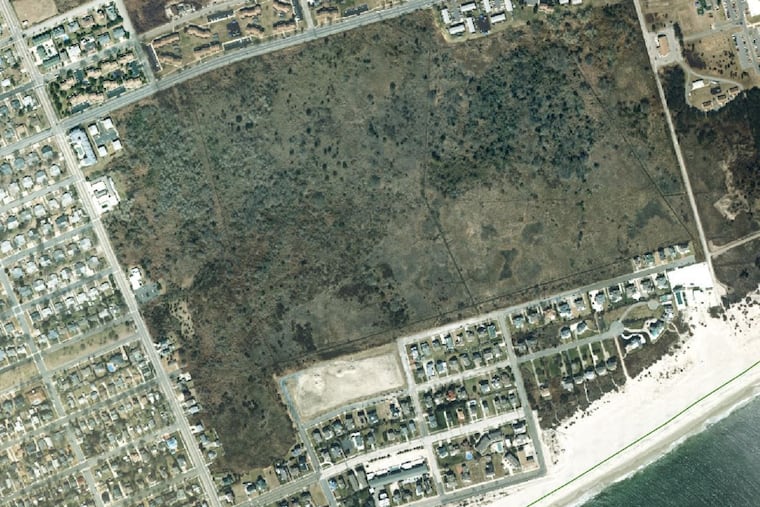Cape May’s largest undeveloped property preserved after 30-year legal fight
New Jersey will pay $19 million to developers it has been in a legal fight with for three decades to preserve the largest undeveloped parcel in Cape May.

New Jersey will pay $19 million to developers it has been fighting for three decades to preserve the largest undeveloped parcel in Cape May, according to details of a settlement disclosed Tuesday.
“Both environmentally and financially this is such a success for the city,” said Cape May Mayor Zack Mullock, who noted that he’s been told the suit was the longest-running litigation in the state.
“It’s a great victory,” said Jim Testa, president of Concerned Citizens for Sewell Tract Preservation, which had intervened in the case. Testa released the details of the settlement.
Though the 100-acre Sewell tract is not beachfront, Testa said the preserved land “will be like having a forest in the middle of Cape May,” contribute to wildlife habitat, and continue to “act like a giant sponge” to help relieve flooding during storms that grow more severe as the climate warms.
» READ MORE: Cape May is adding Allen A.M.E. Church to its central core of Black heritage sites reimagined as community hubs
The undeveloped land, known as the Sewell tract, is off Pittsburgh and Pennsylvania Avenues, between Cape May Harbor and the Atlantic Ocean, and is close to the Coast Guard Training Center at the east end of the 2.9-square-mile city.
A representative for the state Department of Environmental Protection could not be reached immediately for comment.
The settlement puts to rest a saga stretching back to the 1950s when East Cape May Associates purchased the land from the city, pledging it would be developed. In return, the city promised to provide utilities.
Plans stalled, however, as appreciation for the environmental value of property like it grew and the state and federal government sought stiffer protections for wetlands and coastal areas.
In 1990, the DEP denied East Cape May Associates’ permit application to build 366 single-family homes on the land. The developer filed a civil suit in state Superior Court in 1992, claiming its property had been so devalued, the state essentially was taking its land without compensation.
The parties eventually neared a settlement that would have allowed for partial development, but that collapsed when federal authorities essentially stepped in citing environmental issues. A mistrial in 2019 further complicated the case, and the pandemic added another delay.
Though principals in East Cape May Associates have died in recent years, their estates have continued the case. Jacob Perskie, an attorney who has represented East Cape May Associates in court, said he could not comment when reached Tuesday afternoon.
Testa would like to see the state open access to the public and include walking and birding trails as a managed park. He would also like to see adjacent city-owned land incorporated into the preserved area, as well as some individually owned parcels.
In a review of its master plan in 2019, Cape May officials called the Sewell tract a “freshwater priority area” and home to threatened and endangered species, and noted the U.S. Fish and Wildlife Service had also declared the area as priority wetlands to protect against rising sea waters.
Cape May City Council has also passed resolutions in support of preservation of the tract. The city was not, however, a participant in the lawsuit.
Mullock, the mayor, said the preservation saved the city $16 million in bonds it had approved, but never issued, to provide utilities to the site. The lawsuit had “hung like a dark cloud” over the city, he said, noting that the city would have had to issue the debt if the land had not been preserved.
Environmentally, he said, the land is part of a major flyway for migrating birds after crossing the Delaware Bay.
“This is just an all-around home run for Cape May,” Mullock said.
The mayor said he met personally with Gov. Phil Murphy during the city’s Independence Day Parade in July and preserving the Sewell tract was the sole focus of the conversation.
The city owns 10.5 acres adjoining the site, Mullock said, and would like to see it used in conjunction with the new preserved site, with maybe a parking lot added to accommodate birders and other users.